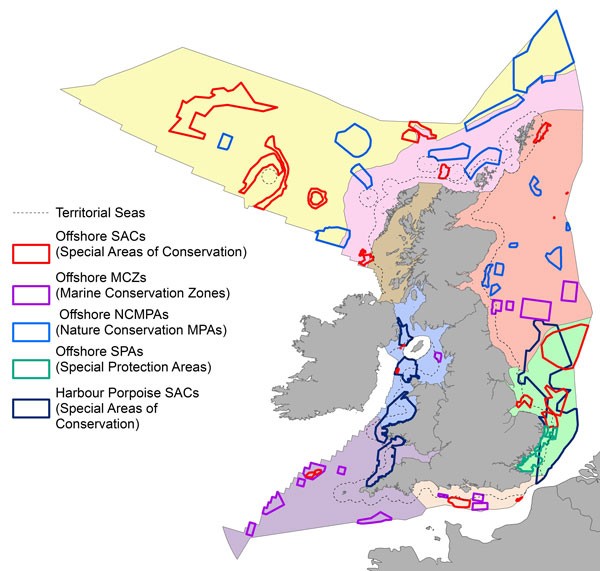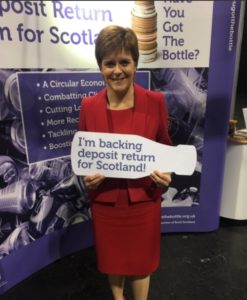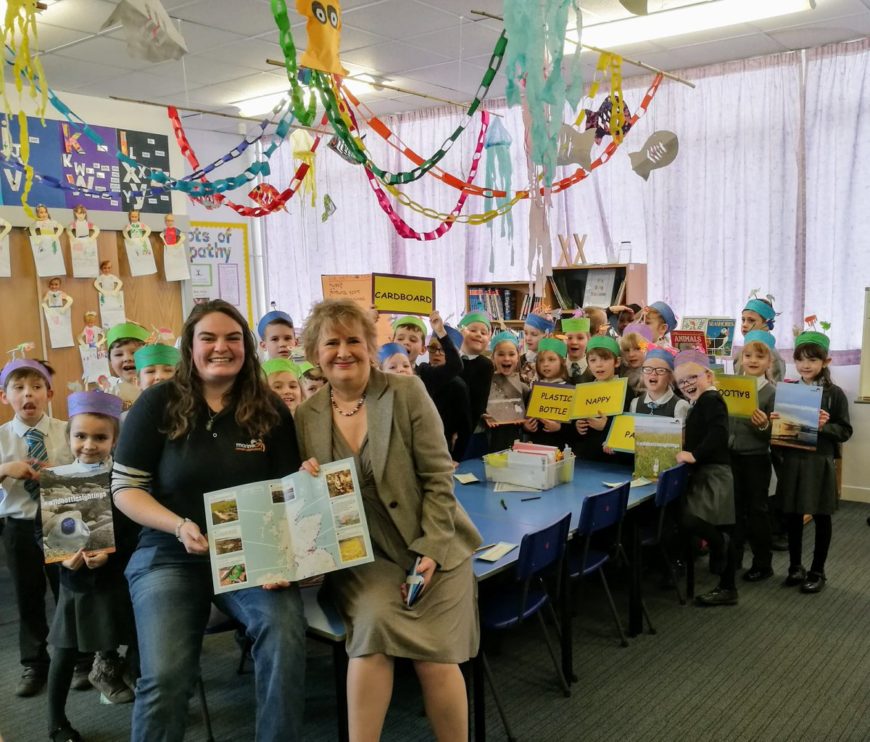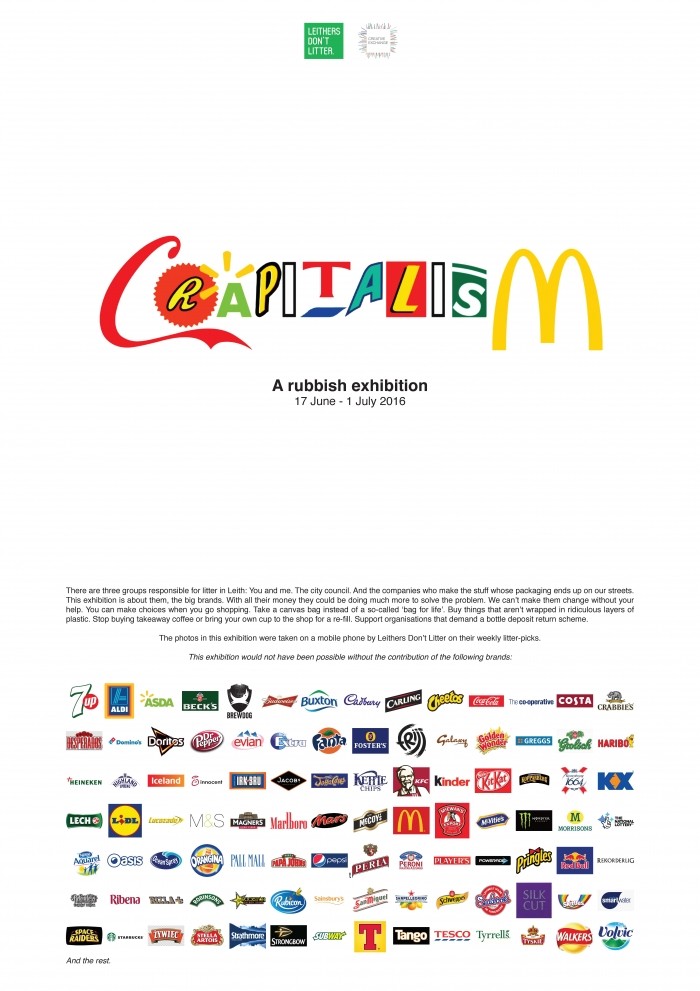SCOTLAND’S FIRST INTERNATIONAL MARINE CONFERENCE!
Scotland is the only country to have made a national marine carbon inventory
This February the Scottish government launched their first ever International Marine Conference, bringing together representatives from more than 10 other nations. Our campaign co-ordinator Jasmine was there to get the low down and find out what we can learn from Scotland.
Kicking off the conference was Scotland’s First Minister – Nicola Sturgeon, reminding everyone present of the importance of the ocean to Scotland – which actually accounts for 8% of Europe’s total coastline! The marine environment surrounding Scotland has huge importance for globally significant species, for tourism and for offshore wind and tidal power.
The first day of the International Marine Conference focused on Marine Protected Areas (MPA’s) and Blue Carbon – two areas in which Scotland is trying to show leadership. Under the Convention on Biodiversity there are global obligations to protect 10% of the world’s oceans by 2020. Demonstrating their commitment to ocean health Scotland are already protecting 22% of their territorial waters and are aiming for even more. Dr Sarah Cunningham from Scottish National Heritage highlighted that MPA’s must now have flexible boundaries and management across regions, in order to account for the movement of species and habitats in response to climate change.
Scotland is the only country to have made a national marine carbon inventory, looking at how the marine environment can help reduce global greenhouse emissions. Scottish peatlands and fjords store a huge amount of carbon, some of which has been locked in these environments since the ice age, so it’s vital to carefully manage these areas!

Day 2: Marine litter
The second day of the conference was focused on marine litter, where Scotland are also spearheading the way in some areas of policy and planning. As Cabinet Secretary Rosanna Cunningham pointed out:
“We’re an innovative species… we’re the ones who invented plastic in the first place! It’s time to solve this problem which we ourselves created.”
Scottish government have banned microplastic in personal care products, will be banning plastic stemmed cotton buds from the summer of 2019, have 300 sea vessels signed up to the Fishing for Litter scheme, and have just released the results of their consultation on a Deposit Return System (where England and Wales are only just opening a consultation to the public). Being the first government in the UK to supply free period products to students, we were very excited to hear that the government is also working to promote reusable menstrual products with Zero Waste Scotland! Great news for Plastic-Free Periods!

Lewis Pugh – Patron of the Oceans UN Environment Committee – swam an inspirational 1km across the north pole (which should be covered in ice) to send a message to global leaders about climate change. As a keynote speaker at the conference Lewis spoke of the importance of belief and absolute commitment to achieving a goal:
“When we think about the environment we’ve been diving in with thoughts of victory and defeat at the same time. You cannot confuse your subconscious by preparing for success and defeat simultaneously. Chose success – there is nothing more powerful than a made-up mind.”
The International Marine Conference was full of fascinating researchers, inspiring campaigners and grassroots groups made up of people whole-heartedly committed to protecting our oceans for generations to come. Here are just a few of them who stood out for their dedication and passion for the cause:
– The Marine Conservation Society and Our Ladys RC Primary School
During her ocean outreach work Catherine Gemmell from MCS met the ambitious year 3 students at Our Ladys RC school. After Catherine’s workshop these inspired students created a campaign called Wild Bottle Sighting Alert! In collaboration with MCS they encouraged anyone who found a littered water bottle to report it on the Wild Bottle Sightings map, helping to raise the profile of plastic bottle pollution and collect valuable data. This campaign was used to send a message to Scottish politicians about why a Deposit Return scheme is so vital. Scotland’s mini rockstars!

- Fidra
Fidra have been working to reduce plastic pollution from cotton buds for years. They’re a great example of how working with industry rather than targeting policy makers or consumers, can be the way to reach the heart of product issues. One of the reasons our Switch the Stick campaign was so successful was thanks to the behind the scenes work from Fidra, and now Scotland will be banning plastic cotton bud stems this summer!
Zsuzsa and Gerry are both advertising professionals who have worked for Coca-cola, Irn Bru, Honda, Tesco and MasterCard. Luckily for the planet, this committed couple have now turned their talents to anti-littering campaigns in Scotland, with amusing, memorable and award-winning results! Check out their visual campaigns here.

- Rune Gaasø and Clean Shores
Geologist Rune Gaasø is working with Eivind Bastesen and Clean Shores to identify, log and remove plastic from an entire island off the west of Norway. Currents have washed litter ashore on this island probably since plastic was invented, so it will be a fascinating study. The litter is meters deep and on one dig they found plastic bottles from the UK, remnants of a light bulb from the Netherlands and a chip packaging from Germany. Hats off to Rune and Eivind for mobilising their communities and taking ambitious clean up action that highlights the extent of our plastic pollution problem! - Sunnyside school of Conservation
A few years ago Sunnyside’s oldest student group made a photography calendar with David Yarrow about anti-rhino and elephant poaching, they campaigned to get the council to turn their heating down by 2 degrees and campaigned against cetaceans being held in captivity. When it was time for the class to leave primary school, the projects weren’t finished and so they passed them down to the rest of the school to continue taking action towards a more sustainable world. Each year group now focuses on one conservation theme and have since raised money for bears and lions rescued from circuses, become recycling champions and designed light-switch stickers to remind people to switch off their lights and save energy!

As well as passion, successful ocean conservation requires a global and political sharing of resources to allow developing countries to skip straight to best practise. We need to stop reinventing the wheel and start urgently implementing the policies, practises and projects that we know work. This inspiring conference suggested that Scotland fully intend to lead the way in trialling solutions on a small-country scale, which hopefully can be rolled out globally moving forward.
Amidst fears around how our government will act on environmental concerns after leaving the European Union, Nicola Sturgeon re-aussured us that
“… despite Brexit, Scotland is going to continue to maintain EU environmental standards, and to work with partners across the globe.”
We shouldn’t accept anything less from English and Welsh governments. In fact, if Scotland can do it we can’t see any reason why our small island countries of England, Wales and Northern Ireland can’t also follow suit with measures like the Deposit Return System and banning cotton buds.
Sometimes waiting for strong leadership from powerful people makes us feel powerless. Here are some things we can all do to fight for a healthy planet for future generations:
- Put pressure on governments and businesses: write letters, send emails, go to protests, maximise your voice on social media, sign petitions.
- Fill in the current consultation on a Deposit Return Scheme for England, Wales and Northern Ireland. It’s a VERY long consultation but just comment on the questions that you feel strongly about and don’t worry about the rest!
- Create or join local action groups like Plastic-Free Communities, Transition towns or local Extinction Rebellion groups.
- Organise local awareness events or campaigns to increase knowledge about climate change and marine conservation.
- Switch to a plant-based diet – this could reduce your foods environmental footprint by up to 73%.
- Halve the amount of flights you take per year and try to take holidays closer to home. We certainly recommend the beautiful landscapes of Scotland’s lochs, which we were sure to visit after the conference!
- Use public transport over driving and where possible use electric over fossil fuel. If you can drive rather than fly, do it!
- Refuse single-use plastic and support zero waste businesses.
- Click here for some easy switches that you can make to reduce your plastic footprint.
We left Scotland’s International Marine Conference feeling inspired and hopeful, and look forward to working collaboratively for a year of bold action from politicians, community groups and businesses alike!

